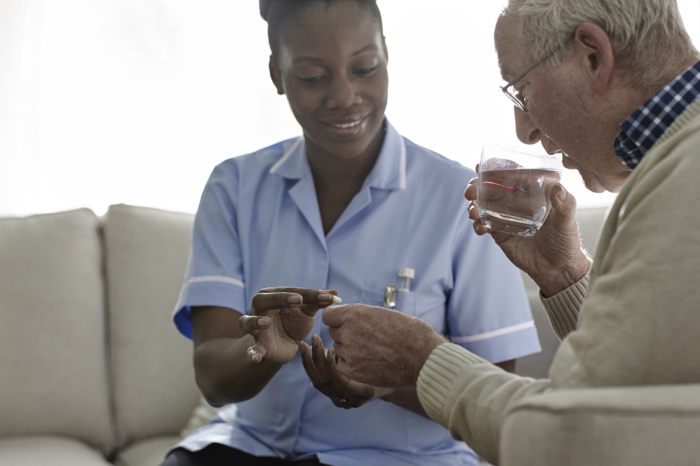 While the importance of mobility for driving productivity, efficiency and satisfaction across the healthcare industry has been well documented, there is probably no more essential use case than in home healthcare.
While the importance of mobility for driving productivity, efficiency and satisfaction across the healthcare industry has been well documented, there is probably no more essential use case than in home healthcare.
In large part, this is due to the complexity of home healthcare, with providers traveling many miles each day to care for patients in their homes. But it’s taking on greater urgency now because of the tremendous growth in demand for home healthcare services for our aging population. Although we’re living longer and healthier than ever before, about 80% of seniors have at least one chronic illness. Living at home is both more appealing to people and less expensive than nursing homes or long-term hospitalizations.
Mobility gives healthcare organizations a way to efficiently deliver the best quality patient care. However, with so many issues to consider, how do decision makers create a solid game plan for adopting secure mobility in healthcare? The BlackBerry Guide to Mobile Healthcare is a great start. Get your free copy, just by filling out the form on this page.
Because of remote monitoring technologies that keep track of people’s vital signs and ensure they take their medications, as well as greater availability of home healthcare services, people can age in their own homes for much longer than ever before. So it’s in all of our interest to make home healthcare work for as many people as possible, in part, by enabling mobile services.
Why Home Healthcare Should Go Mobile
On February 24, I hosted a webcast, Why Home Healthcare Should Go Mobile, to explore some of the challenges in home healthcare and how mobility can help address them. My guests, John Schram, former CEO and current board member of We Care Home Health Services, and Leigh Popov, Chief Information Officer at Bayshore HealthCare, relayed how their organizations have seen improved patient care and more efficiency. Research shows that an average net benefit of $15,000 per full-time employee can be achieved by deploying a mobile solution.
 Schram said the difficulty of scheduling providers and inefficiency of paper-based systems were one of We Care’s big drivers for implementing BlackBerry UEM (Unified Endpoint Manager, formerly known as BES12) enterprise mobility management (EMM) solution. Previously, home care managers needed to individually phone each home care provider with their daily schedule, then wait for confirmation that the provider could see all the patients they were assigned that day, and make additional phone calls if the schedule had to be changed due to delays or other circumstances. Now, managers can send the day’s schedule to all care providers electronically and get nearly immediate confirmation from providers, saving significant time and frustration.
Schram said the difficulty of scheduling providers and inefficiency of paper-based systems were one of We Care’s big drivers for implementing BlackBerry UEM (Unified Endpoint Manager, formerly known as BES12) enterprise mobility management (EMM) solution. Previously, home care managers needed to individually phone each home care provider with their daily schedule, then wait for confirmation that the provider could see all the patients they were assigned that day, and make additional phone calls if the schedule had to be changed due to delays or other circumstances. Now, managers can send the day’s schedule to all care providers electronically and get nearly immediate confirmation from providers, saving significant time and frustration.
The system helps providers work more efficiently, as well. They have immediate access to a patients’ electronic health records and can update the record with care notes at the bedside. Because the system automatically tracks care providers’ activities in real time, it simplifies paying workers and billing clients. And it enables providers to alert their managers if they are in an unsafe situation or need backup help with a patient.
The productivity and patient satisfaction benefits of mobile healthcare are unquestionable, but the healthcare industry must recognize that mobility is the weakest point in its security posture, said Popov. “This is not the same thing as when we used to secure PCs with antivirus. It’s a very different thing” because of the threat of losing control of patients’ protected health information due to lost or stolen devices, keyloggers, phishing and other threats, he said.
Popov praised BlackBerry for delivering powerful, flexible solutions that address Bayshore’s challenges around mobile security. “Mobility management takes time, effort and know how, so you need serious tools to help,” he said. “Choose partners who understand and can adapt to the changing landscape and can help you and your organization adapt. Things will not be the same in six months; you need a partner that is able to keep up.”
Listen to the archived presentation
For a deeper dive into this topic, listen to the archived presentation Why Home Healthcare Should Go Mobile. It, along with BlackBerry webcasts on a variety of topics, is available for playback at BlackBerry Enterprise Webcast Central.
